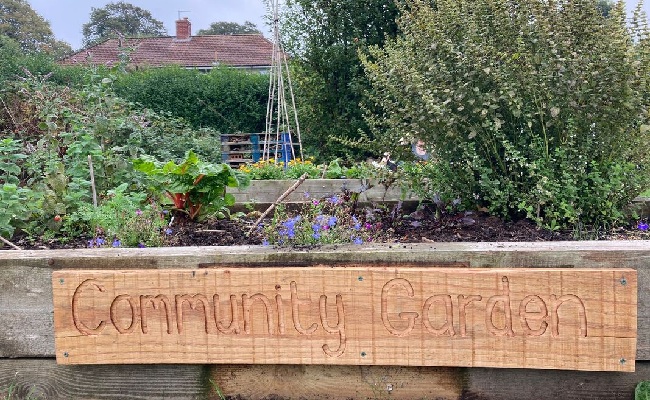Goal 15: Life on land
Protect, restore and promote sustainable use of terrestrial ecosystems, sustainably manage forests, combat desertification, and halt and reverse land degradation and halt biodiversity loss
Our research
A new discovery about wheat genetics could help provide sustainable food supplies, thanks to a collaboration between researchers from Bristol and partners around the world. The study, which looked at historic wheat variants and identified diversity that could enhance and increase modern wheat types, included tracking technology developed by Bristol researchers that enabled enhanced wheat breeding and testing processes. The decades-long project aims to develop wheat that is more resilient to disease and the effects of climate change.
Around 45% of global land surface comprises deserts, shrublands, grasslands, and savanna woodlands. A chief characteristic of these regions is water scarcity, which significantly affects natural ecosystems and human-managed landscapes, including agriculture, forestry and livestock productions. A new study, led by Ghent University in collaboration with the University of Bristol, Cardiff University and ETH Zurich, has revealed that drylands themselves are accelerating their own proliferation. The research found that drying soils in existing drylands release less moisture and more heat into the atmosphere, leading to reduced rainfall and increased atmospheric water demand in downwind humid regions. Over time, this process can cause these humid areas to gradually become drylands themselves.
Our students
Inspired by the Climate Fresk, the Biodiversity Collage is a playful and cooperative workshop that teaches participants to understand the challenges and pressures around biodiversity. Through a workshop which took place in July 2024, students and staff explored the functioning of ecosystems, the role that biodiversity plays for wellbeing, how it interacts with human activities and the threats that biodiversity faces – all based on the IPBES scientific reports.
The Professional Liaison Network have developed a series of research activities for students, in collaboration with Natural England and Hillfields Community Garden, that aimed to understand how nature recovery could impact the Hillfields community, how the community perceives nature recovery, and ways in which they could participate in nature recovery action that supports the local Climate Action Plan. In addition, they explored the potential role of social green prescribing in Hillfields and the barriers that prevent the community accessing green spaces and supporting nature recovery.

Our communities
Bristol school pupils, working as citizen scientists in collaboration with researchers, studied the species of bacteria found in soils at two local schools, the Avon riverbank, a square in the centre of the city, a University farm and a local deer park. They found that human impacted soils tend to harbour different microbial communities to those areas less affected by human activities and that the make-up of the soil and environmental factors also played a key role. The project shared its work at festivals at community events across the city, and conversations about the role of terminology used in soil research led to the development of a new approach to guide research which does not treat nature as a resource to be exploited.
Two researchers from the Cabot Institute for the Environment joined COP 16 – the Conference of the Parties to the Convention on Biological Diversity – as observers in October 2024. Bringing together scientists, Indigenous communities, business representatives and environment ministers from nearly 200 countries, the summit aimed to drive forward a call to action, urging nations to move away from extractive and unsustainable practices affecting biodiversity. As well as observing the negotiations, the researchers hosted one of more than 1,000 public events associated with the summit.
Ourselves
Our gardens and green spaces are a key part of the University’s estate and are a space for relaxation, volunteering and research. The care and maintenance of these spaces has a positive impact for our local wildlife and nature biodiversity, with many opportunities for staff and students to get involved in nature conservation activities. Events at our Botanic Garden include the annual Bee and Pollination Festival which in 2024 enabled visitors to find out about the vital role pollinators play in our lives and our gardens.
The latest addition to our Botanic Garden, the Guangzhou Garden, opened in May 2024. This exciting new garden first appeared at the Royal Horticultural Society Chelsea Flower Show in 2021. Its theme of sustainable landscape cities shows the environmental planning work and management of natural resources in a ‘mega city’ of Guangzhou. It won a gold medal and the coveted Best in Show Award, and afterwards was donated by the Guangzhou Forestry and Parks Municipality to the citizens of Bristol – its sister city. The Guangzhou Garden has been reimagined, rebuilt and replanted at the Botanic Garden as a valuable addition to the University and the city of Bristol.
